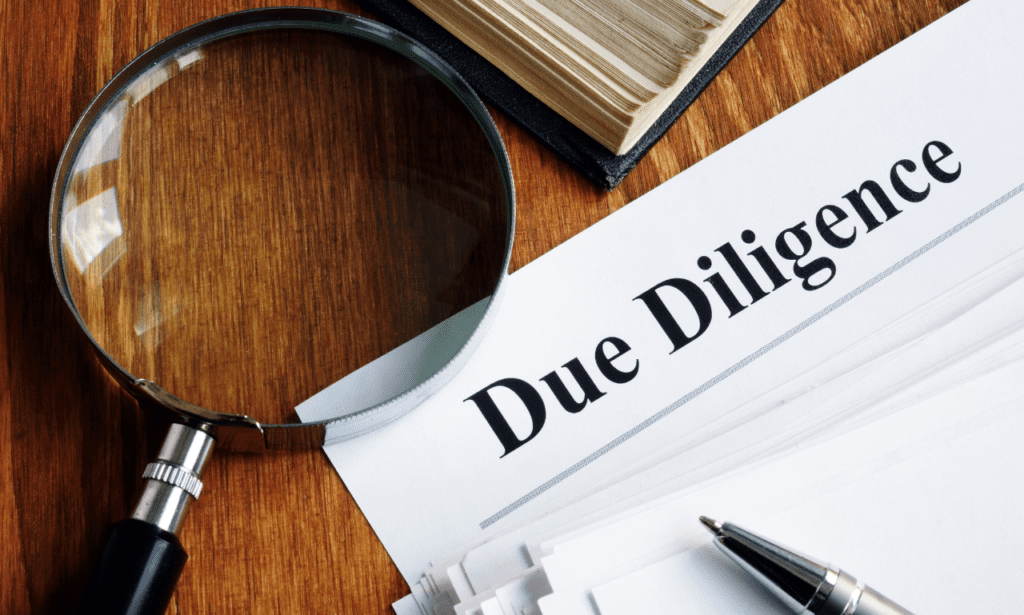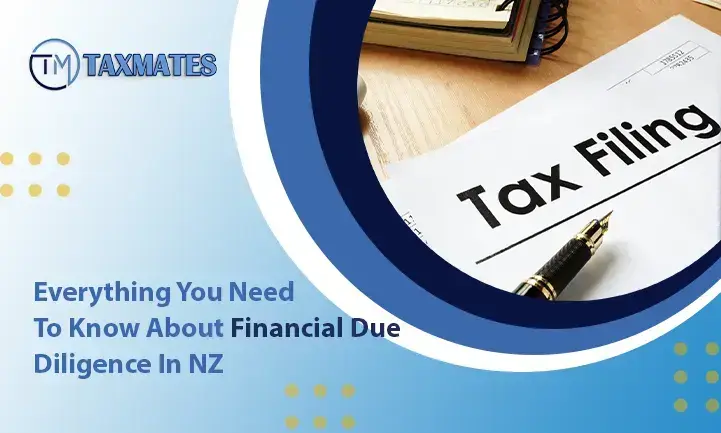Financial due diligence is a critical step in any business transaction, especially in the context of mergers, acquisitions, or investments. It involves a thorough examination of a company’s financial records, performance, and operations to assess its true value and identify any potential risks or opportunities.
That’s why in this comprehensive guide, We have covered everything that you need to know about financial due diligence from preparing financial due diligence, its components, and practices, and addressing uncovered issues to the due diligence checklist this guide has got you covered.
Preparing for Financial Due Diligence

Before diving into the due diligence process, it’s essential to prepare adequately. This includes gathering all relevant financial documents, such as balance sheets, income statements, cash flow statements, tax returns, and any other pertinent records. Organizing these documents and ensuring their accuracy will streamline the due diligence process.
The Financial Due Diligence Process
The financial due diligence process typically follows a structured approach. It begins with an initial assessment of the target company’s financial health and performance.
This involves analyzing historical financial data, identifying trends, and evaluating key financial metrics. Subsequently, detailed analyses are conducted to assess the company’s assets, liabilities, revenue streams, expenses, and cash flow dynamics.
Conducting Financial Due Diligence NZ
In New Zealand, conducting financial due diligence requires adherence to local regulations and standards. This includes compliance with the Financial Markets Conduct Act and other relevant legislation. Additionally, cultural and market nuances specific to New Zealand must be considered during the due diligence process.
Key Components of Financial Due Diligence
Several key components form the foundation of financial due diligence. These include assessing the target company’s financial statements, understanding its accounting practices, evaluating its internal controls and risk management processes, analysing its industry and market dynamics, and conducting sensitivity analyses to assess potential scenarios.
Key Components of Financial Due Diligence are:
- Financial Statements Analysis: Examining balance sheets, income statements, and cash flow statements to assess the company’s financial health and performance over time.
- Accounting Practices Evaluation: Reviewing accounting methods, policies, and practices to ensure compliance with relevant regulations and industry standards.
- Internal Controls Assessment: Evaluating the effectiveness of internal control systems to mitigate the risk of fraud, errors, and misstatements in financial reporting.
- Industry and Market Dynamics Analysis: Understanding the company’s position within its industry, market trends, competitive landscape, and potential growth opportunities or challenges.
- Asset and Liability Examination: Scrutinising the company’s assets, liabilities, and contingent liabilities to determine their fair value, ownership, and potential impact on financial performance.
Best Practices for Buy-Side Financial Due Diligence
For buyers, adopting best practices during the financial due diligence process is crucial. This includes maintaining confidentiality, conducting thorough analyses, involving cross-functional teams with expertise in finance, accounting, legal, and operations, leveraging technology and data analytics tools, and seeking advice from experienced financial advisors.
Best Practices for Buy-Side Financial Due Diligence are:
- Maintain Confidentiality: Ensure confidentiality agreements are in place to protect sensitive information throughout the due diligence process.
- Thorough Analysis: Conduct comprehensive analyses of financial data, operational metrics, and market dynamics to gain a deep understanding of the target company’s value and risks.
- Cross-Functional Teams: Involve experts from various disciplines, including finance, accounting, legal, and operations, to provide diverse perspectives and insights during due diligence.
- Leverage Technology: Utilise data analytics tools and technology platforms to streamline data collection, analysis, and reporting, improving efficiency and accuracy.
- Engage Experienced Advisors: Seek guidance from experienced financial advisors and consultants with expertise in mergers, acquisitions, and due diligence to navigate complex transactions effectively.
Addressing Issues Uncovered During Due Diligence
During the due diligence process, various issues may arise, ranging from financial discrepancies to operational inefficiencies or compliance concerns.
It’s essential to address these issues promptly and effectively, either through renegotiating terms, implementing corrective measures, or seeking alternative solutions.
Issues during due diligence:
- Prompt Communication: Communicate any issues or concerns uncovered during due diligence promptly and transparently with all relevant parties, including stakeholders and advisors.
- Negotiate Terms: If significant issues arise, renegotiate terms of the transaction to reflect new information and mitigate risks appropriately.
- Implement Corrective Measures: Develop and implement action plans to address identified issues, such as improving internal controls, resolving compliance issues, or restructuring operations.
- Seek Alternative Solutions: Explore alternative solutions or contingency plans to mitigate risks and ensure the success of the transaction, such as adjusting the deal structure or seeking additional assurances from the seller.
- Continued Monitoring: Maintain ongoing monitoring and oversight of the target company post-transaction to ensure the effectiveness of corrective measures and mitigate any remaining risks effectively.
Financial Due Diligence Checklist:
Here is the important checklist for financial due diligence that you need to consider:
| Financial Due Diligence Checklist | |||
| 1. Financial Statements | 2. Tax Records | 3. Legal Documentation | 4. Asset Documentation |
| 5. Liabilities | 6. Employee Information | 7. Financial Controls | 8. Operational Data |
| 9. Industry Analysis | 10. Management and Governance | 11. IT and Data Security | 12. Environmental Compliance |
| 13. Contingent Liabilities | 14. Due Diligence Reports | 15. Professional Advisor Engagements | |
Get Help From Professional Financial Advisors
Navigating the complexities of financial due diligence requires expertise and experience. At TaxMates, our professional financial advisors specialize in guiding clients through the due diligence process.
From conducting thorough analyses to providing strategic insights and recommendations, we ensure our clients make informed decisions and mitigate risks effectively with our service.
Frequently Asked Questions
What is financial due diligence?
Financial due diligence involves thoroughly examining a company’s financial records, operations, and performance to assess its value and identify potential risks or opportunities, typically in the context of mergers, acquisitions, or investments.
How to conduct financial due diligence?
Conducting financial due diligence requires gathering relevant financial documents, analysing them to understand the company’s financial health and performance, evaluating accounting practices and internal controls, assessing industry dynamics, and seeking guidance from experienced advisors.
How can I prepare for due diligence?
To prepare for due diligence, organise financial documents, ensure their accuracy, review internal controls, anticipate areas of scrutiny, collaborate with key stakeholders, and engage experienced advisors for guidance and support throughout the process.
Conclusion
In conclusion, mastering financial due diligence is essential for success in any business transaction. By understanding the process, preparing diligently, and leveraging Professional Financial Advice or Business Advice can mitigate risks, identify opportunities, and maximize value.
In New Zealand’s business environment, adherence to local regulations and best practices is paramount. At TaxMates, we’re committed to supporting our clients throughout the financial due diligence journey and helping them achieve their strategic objectives.





